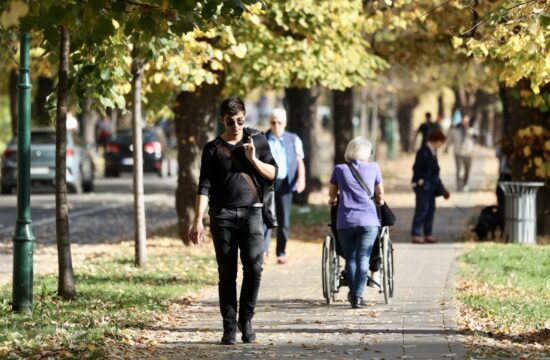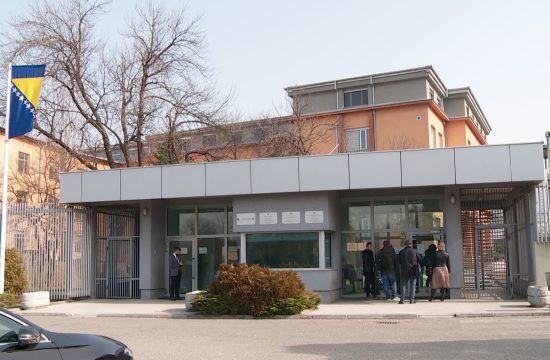Bosnian Serb leader Milorad Dodik said on Friday that Bosniaks are trying to “build a myth around Srebrenica,” the town where Bosnian Serb forces committed genocide in 1995.
Dodik is known for his denial of the genocide despite the rulings of two international courts.
He claims that what happened in the eastern Bosnian town during the 1992-1995 war was “terrible” and that it showed the “brutality of war,” adding that any crime committed there should be condemned.
“Bosniaks are trying to build a myth around Srebrenica. That is a fake myth, that myth does not exist,” he said before the start of a conference named “Srebrenica, reality and manipulations,” which is taking place in Banja Luka, the administrative centre of Republika Srpska (RS) – the Serb-majority semi-autonomous entity in the country.
He said that a late British diplomat created the narrative around Srebrenica while he was Bosnia’s High Representative – the official tasked by the international community to oversee the implementation of the 1995 Dayton Peace Agreement which ended the war.
That narrative focuses only on what happened throughout seven days in 1995, he said.
“That was created by former representative in Bosnia and Herzegovina, Paddy Ashdown, and others from the international community, despite the fact that the story includes the entire period of the war and some historical developments and processes,” he said.
“It is a fact that Srebrenica was not a topic until Paddy Ashdown came to Bosnia and Herzegovina,” he said. “Suddenly they thought of turning it into a myth, which every national group needs, and Bosniaks had no other myth.”
He also said that Serbs have been convicted of what happened during the war, but Bosniaks have not, exemplifying it with former Bosnian Army commander in Srebrenica, Naser Oric.
Three times Oric stood in court, once in the UN court in The Hague and twice in Sarajevo, for alleged war crimes against the Serbs. He was sentenced to two years for failing to prevent the deaths of five Bosnian Serb detainees as a commander.
The two years he served during the trial in The Hague, Netherlands. He was acquitted in two more war crimes trials in Sarajevo. Bosnian Serbs were unhappy with the outcome of each of his trials, claiming the courts were biased against Serbs.
“Then we cannot speak of justice or reconciliation here,” Dodik said, adding that there is an attempt to maintain “the story of Srebrenica by adopting a law on denial.”
Dodik never used the word ‘genocide’ in his Friday statement.
The conference where he spoke was organised by senior officials in the Army of Republika Srpska, the Institute for Research on Suffering of Serbs during the XX century, and the independent university of Banja Luka.
Such gatherings “provide a new image about the truth of what happened in Srebrenica,” Dodik said.
The Association of Victims and Witnesses of Genocide reacted immediately, saying that there is no need to create a myth around Srebrenica.
“We respect the decisions of international institutions, as are the United Nations and the European Union, which have in their rulings confirmed that a genocide was committed in Srebrenica by the Army of Republika Srpska and the Interior Ministry of Republika Srpska,” the association said.
“You know this well and you confirmed it in 2005,” it said, referring to a report from that year which the RS government adopted and that stated the crime constituted a genocide.
On July 11, 1995, Bosnian Serb forces overran the eastern Bosnian enclave and rounded up the town’s Muslim Bosniaks, separated men from women and little children and systematically executed some 8,000 men and boys. The bodies of the victims were buried in a large number of mass graves.
The International Criminal Tribunal (ICTY) for the Former Yugoslavia and the International Court of Justice later ruled that the massacre was an act of genocide.
International and regional courts have sentenced 45 people for what happened in Srebrenica to a total of more than 700 years behind bars.




